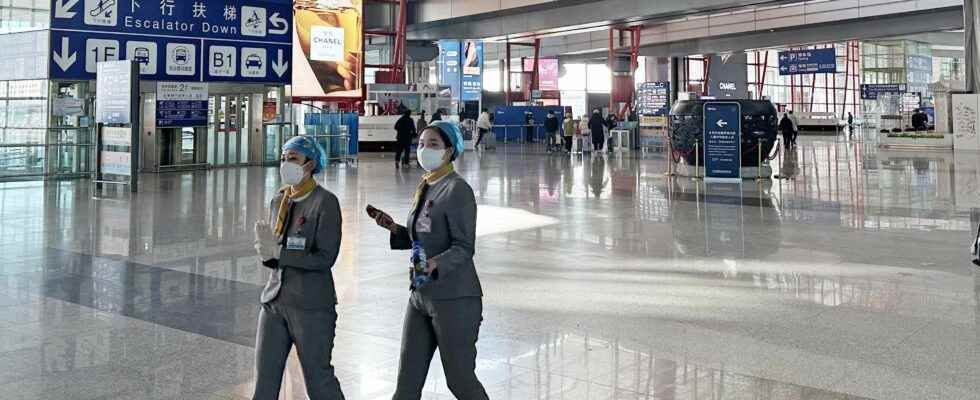It’s a potentially game-changing factor, as the world finally seemed to have put the binding protocols for travelers behind it. After having led an extremely strict “zero Covid” policy for three years, Beijing announced, on December 26, the relaxation of the conditions for entering and leaving its territory. On January 8, Chinese citizens will again be able to apply for a passport to travel abroad, and mandatory quarantines for arrivals will be lifted upon presentation of a negative PCR. This news provokes the mistrust of the international community, faced with the lack of data shared by the People’s Republic of China.
But the country has been plagued for many weeks by an unprecedented outbreak of contamination, due to a population made very vulnerable by constant confinements and the low rate of vaccination, in particular among the elderly. This opening of the borders was therefore immediately perceived as a health threat by many countries: neighboring Japan, India, but also the United States and Italy quickly reacted to this announcement.
Negative test and quarantine
In Japan, screening will be required on arrival for travelers from China. They will be the only ones to have to submit to it, with those presenting characteristic symptoms of Covid-19. Chinese travelers will have to quarantine for seven days if they test positive. The number of flights to Japan from China will even be limited, according to the Japanese Prime Minister, who evokes “growing concern at the difficulty of knowing the Chinese epidemic situation in detail”. The island of Taiwan, which Beijing claims as its territory, is implementing the same control and quarantine system from January 1, according to Reuters. India goes even further: it has imposed since December 24 a PCR test on arrival of all travelers from China, but also from Taiwan, Japan, South Korea and Singapore.
Neighboring countries are not the only ones to worry about the opening of Chinese borders. Italy has also decided to impose tests on Chinese tourists “to guarantee the surveillance and individualization of possible variants of the virus in order to protect the Italian population”, according to the Minister of Health. The country could be followed by its European colleagues. The United States is also currently considering putting in place specific restrictions for travelers coming from China, or passing through the country. “The international community is increasingly concerned about the current outbreaks of Covid-19 in China and the lack of transparent data, including viral genomic sequence data, reported by the PRC,” said on condition of anonymity. American officials, notes AFP.
Lack of clear data from China
A major concern is China’s lack of communication with the international scientific community. “We don’t know what variants are currently circulating there, and whether these variants have a different response to vaccination” than those we know, indicated to Guardian Australian infectious disease professor Dominic Dwyer.
Assessing the dangerousness of the situation is all the more complicated since Beijing has stopped publishing the number of daily cases of Covid-19. Also according to the English daily, WHO Director General Tedros Adhanom Ghebreyesus called on China to share data and conduct relevant studies to help the world understand which variants of Covid are circulating.
